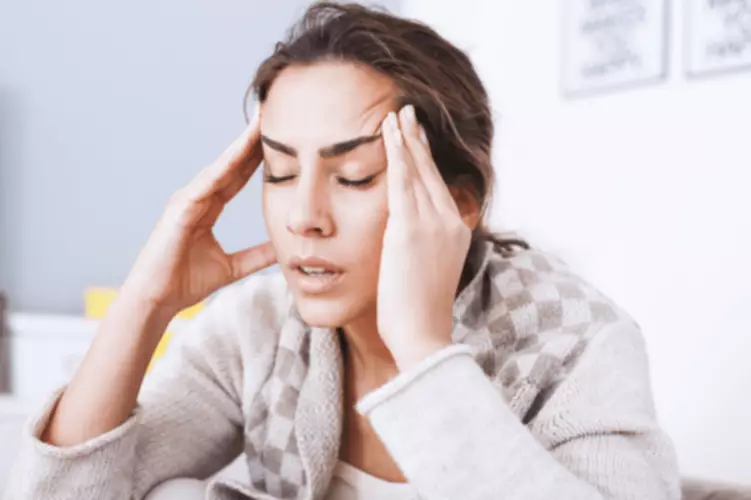Rising above peer pressure means not giving in to the pull of others to act in a certain way. No matter your age, you can practice not giving in to negative peer pressure and work on surrounding yourself with more positive influences. Being pressured by peers can be a stressful experience, whether it happens in person or online. It may shake your sense of identity and self-confidence and may contribute to excessive worry.
- Kids often give in to peer pressure because they want to fit in.
- For example, you might see what kids in your class are wearing, like it, and wear something like that, too.
- Positive peer pressure can foster sense of belonging, self-confidence and a solidified sense of self.
- Knowing the facts can help you to resist pressures based on the idea that “everyone is doing it” and that you must party to fit in.
Learn strategies that can help you handle negative peer pressure.
You and your friends make dozens of decisions every day, and you influence each other’s choices and behaviors. This is often positive — it’s human nature to listen to and learn from other people in your age group. Last but not least, it is okay to turn to trusted adults for guidance if you’re feeling overwhelmed which of the following is a type of indirect peer pressure? by peer pressure. Parents, teachers, or mentors can offer valuable advice and support during challenging times. Knowing what matters most to you is the first step in handling peer pressure. Take time to reflect on your values and priorities, such as your education, family, or personal goals.
Teach Teens to Stay Away
- Navigating school life can be pretty tough – here are some tips that we hope will help.
- Get health tips and parenting advice from Children’s Health experts sent straight to your inbox twice a month.
- Dealing with peer pressure can be difficult, but below are some ways to help address it.
Heart pounding, Leah leaned against the store’s unattended makeup display and slid two tubes of lipstick into her purse. She looked bored and detached as she followed her friends Suki and Jill out of the store, but inside she felt panicked. It’s possible that a friend who is peer pressuring you simply wants to spend more time with you or connect with you, but they don’t know how else to ask. When you’re faced with a choice, ask yourself what your reasons are for doing something. If it’s because all of your friends are doing it and you’re afraid they won’t talk to you if you don’t join them, then you may want to reconsider. School stress can cause physical symptoms, like headache and nausea, as well as behavioral signs, like mood changes and sleep disruption.
- If you feel you need help with navigating situations like these, make sure you get some support.
- Discipline your child, but also know it’s a good opportunity to teach your child about choices and having the courage to say no.
- See seven tips to help teens avoid negative peer pressure and respond in a healthy way.
- Peers are people who are part of the same social group, so the term “peer pressure” refers to the influence that peers can have on each other.
- It can be easy for homework and school activities to take over a schedule, so it can be important to make time for family and friends.
Path to improved health
College students nowadays face greater social pressures compared to the past – The Maine Campus – The Maine Campus
College students nowadays face greater social pressures compared to the past – The Maine Campus.
Posted: Sun, 25 Feb 2024 08:00:00 GMT [source]
This dual task involves continually modifying and validating their self-worth through interactions with peers. As a result, self-esteem forms as a direct function of both positive and negative past, present, and future experiences. Changing hormones, developing brains and emerging identities makes the start of adolescence a particularly vulnerable time, where peer pressure is most influential.
And, if they do, are they doing it for the same reasons as students in smart-to-be-cool schools? See seven tips to help teens avoid negative peer pressure and respond in a healthy way. The desire to fit in and feel like you are part of a group is normal, and most people feel this way sometimes, especially in the teen and young adult years. Peer pressure, that feeling that you have to do something to fit in, be accepted, or be respected, can be tough to deal with. Dealing with this pressure can be challenging, but it’s important to reflect on your own personal values and preferences and make decisions based on those rather than on peer pressure.
If you feel pressured by people to do things you’re uncomfortable doing, there are lots of ways to respond. Be prepared to deal with peer pressure by having a response ready. Avoid places where people do illegal activities or other things you feel uncomfortable around. Lean on people for support, like your friends, family, or a therapist. If the peer pressure is still too much to handle, let your teens know they don’t have to deal with it on their own.

Ever felt like you had to do something you feel is wrong just because everyone around you was expecting it? At school, it’s common for peer pressure to push you to do things like talk back to a teacher or join in with not-so-nice comments about someone. In answering these questions, students can write short ‘success’ stories about how they would resist such negative peer pressure. Reference Groups have the biggest influence on students, because what students are trying to do is fit into a group and form self-identity at the same time.
Peer Influence Isn’t All Bad
- Peer pressure begins as early as age 10 with the forming of social groups in elementary school and increases during adolescence, throughout junior high and high school.
- Equipping teens with a variety of communication strategies empowers them to make good decisions when faced with peer pressure.
- Coming up with ways to withstand peer pressure when you’re put on the spot can be tricky.
- Our tweens and teens are listening to us, even if it may not always seem like it.
- If they seemingly feel unable to come to you, for now, let them know it’s also okay to seek guidance from a trusted adult other than yourself.
You deserve to surround yourself with supportive people who respect your decisions—not people who pressure you into doing something that doesn’t feel right. Instead of quickly agreeing to do something you’d rather not do, pause and take a few deep breaths. If someone is waiting for you to answer them, tell them you need to take a few days and think about it. It’s easier to resist the pressure when you put some time and space between yourself and the situation. Teens who volunteer in their community can keep each other motivated to participate. This involvement can lead to exposure to role models and eventually lead to the teens becoming positive role models themselves.
